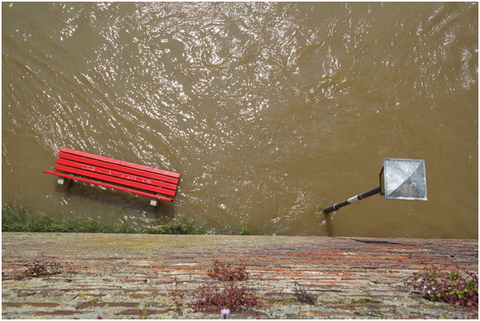Sustainable Urban Drainage Systems - Legislation
Sustainable Urban Drainage Systems Legislation
The aim of the government’s planning policy, first introduced in April 2015, is the continued use of Sustainable Urban Drainage Systems (SUDS) in order to lessen the impact, and in most cases the likelihood, of surface water flooding. SUDS themselves are designed to manage surface water where it falls rather than divert it to the nearest drain.

During the introduction of this revised policy Mr Eric Pickles the then Secretary of State for Communities and Local Government said:
We expect local planning policies and decisions on planning applications relating to major development - developments of 10 dwellings or more; or equivalent non-residential or mixed development (as set out in Article 2(1) of the Town and Country Planning (Development Management Procedure) (England) Order 2010) - to ensure that sustainable drainage systems for the management of run-off are put in place, unless demonstrated to be inappropriate.
Under these arrangements, in considering planning applications, local planning authorities should consult the relevant lead local flood authority on the management of surface water; satisfy themselves that the proposed minimum standards of operation are appropriate and ensure through the use of planning conditions or planning obligations that there are clear arrangements in place for ongoing maintenance over the lifetime of the development. The sustainable drainage system should be designed to ensure that the maintenance and operation requirements are economically proportionate.

Key points of the new policy include:
- Local planning policies and decisions on planning applications relation to major developments (those of 10 dwellings or more; or equivalent non-residential or mixed development) to ensure that sustainable drainage systems for the management of run-off are put in place, unless demonstrated to be inappropriate
- Clear non-statutory technical standards for SUDS has been produced by the Government working closely with the Environment Agency, local authorities and developers to reduce the risk of surface water flooding, improve water quality and the environment and to ensure that SUDS are robust, safe and affordable.
In addition to this the new planning policy states that when considering planning applications local authorities are to:
- Consider SUDs in connection with the planning application
- Consult the relevant lead local flood authority on the management of surface water,
- To satisfy themselves that the proposed minimum standards of operation are appropriate, and
- Ensure through the use of planning conditions or planning obligations (Section 106 agreements) that there are clear arrangements in place for ongoing maintenance over the lifetime of the development. The operation and on-going maintenance of SUDS must also be economically proportionate.
Crucially this policy only affects developments of 10 homes or more and to major commercial development. Whilst installing SUDS is good practice on developments of any size rainwater harvesting solutions are also worth considering in conjunction with any SUDS installation. Often the install ion of both at the same time will make the process a lot simpler and the finished build both more cost and energy efficient.
Quotation taken from Secretary of State for Communities and Local Government (Mr Eric Pickles) 18 December 2014 Written Statement on Sustainable Drainage Systems (Parliament.uk) –http://www.parliament.uk/documents/commons-vote-office/December%202014/18%20December/6.%20DCLG-sustainable-drainage-systems.pdf